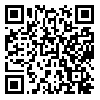شمارۀ جدید فصلنامه (پاییز1404) منتشر شد
Volume 12, Issue 1 (4-2021)
Social Problems of Iran 2021, 12(1): 355-380 |
Back to browse issues page
Download citation:
BibTeX | RIS | EndNote | Medlars | ProCite | Reference Manager | RefWorks
Send citation to:



BibTeX | RIS | EndNote | Medlars | ProCite | Reference Manager | RefWorks
Send citation to:
Ghaderi S, Ghasim T A. (2021). Social and Cultural Consequences of Religious Fundementalism in Afghanistan: From Reacting to Secularism to Reactionary Secularism. Social Problems of Iran. 12(1), 355-380. doi:10.52547/jspi.12.1.355
URL: http://jspi.khu.ac.ir/article-1-3443-en.html
URL: http://jspi.khu.ac.ir/article-1-3443-en.html
1- Assistant Professor, Department of Sociology, Faculty of Literature and Humanities, Kharazmi University , salahedin.gh@khu.ac.ir
2- M.A of Sociology, Kharazmi University of Tehran
2- M.A of Sociology, Kharazmi University of Tehran
Abstract: (2659 Views)
The present article examines the social and cultural consequences of religious fundamentalism in Afghanistan. The main emphasis of the article is on the consequences of fundamentalism in the field of confrontation of the Afghan people with religion. The research method is a qualitative study that has been done using the interview technique. The Contributors are various educated groups, including professors, students, religious scholars, and journalists. The results have been tried to better understand this phenomenon by using the theory of analysis method and by drawing a paradigm model and narrative. According to the results, the most important social and cultural consequences of fundamentalism are: cultural conflict, cultural destruction and humiliation, hindering cultural development, promoting dogmatism, promoting social and ethnic violence and promoting gender discrimination. The most important consequences of fundamentalism in the field of religion and religious beliefs are: promotion of pessimism and despair of religion, reactionary secularism, liberating experience, promotion of corticalism, apostasy and promotion of inherited religion. The core category of this study was "reactionary secularism". A study of the causes of the spread of fundamentalism and its consequences in Afghanistan showed that the most important social consequence of this phenomenon in the field of religion and religious beliefs is reactionary secularism. Since, according to many theories and researches, fundamentalism is a reaction to the marginalization of religion, fundamentalism itself has contradictions and contradictions that result in reactionary secularism, and this extremism in itself produces extremism in the opposite direction.
Type of Article: Original Research |
Subject:
Security
Received: 2020/12/23 | Accepted: 2021/05/12 | Published: 2021/09/3
Received: 2020/12/23 | Accepted: 2021/05/12 | Published: 2021/09/3
References
1. اعظم آزاده منصوره و بقالی، هاوژین (1391). تحلیل جامعه شناختی سلفی گری به مثابه یکی از منابع هویت ساز در کردستان ایران، مجله مطالعات اجتماعی ایران، دوره 6 ، شماره 2: 4-29.
2. باقی، عماد الدین (1397). دینگریزی هیستریک، دینگزینی هیستریک، دوماه نامه اجتماعی و فرهنگی صفیر حیات، شماره 19 و 20، ویژه نامه دین گرایی و دین گریزی، سال چهارم: 38-55.
3. حمیدی¬زاده احسان و پروین حاجیپور (1397). جامعه¬شناسی بنیادگرایی: مطالعه بنیادگرایی در سه دین ابراهیمی، تهران: پژوهشگاه فرهنگ، هنر و ارتباطات.
4. دمنت، پیترآر (1390). بنیادگرایی، جهان¬اسلام و نظام بین¬الملل، ترجمه: محمودسیفی پرگو، تهران: دانشگاه امام صادق.
5. دوراندیش، لعل محمد (1396). طالبان و عقلانیت سیاسی با تأکید بر عقلانیت سازی سیاست و دین¬داری، کابل: سعید.
6. فصیحی دولتشاهی و محمد عارف (1395). جامعه شناسی خشونت سیاسی در افغانستان از دولت جمهوری تا امارت طالبان، تهران: پژوهشگاه علوم و فرهنگ اسلامی.
7. زاکرمن، فیل(1384). درآمدی بر جامعه شناسی دین، ترجمه: خشایار دیهیمی، تهران: لوح فکر.
8. ذکریا، فرید (1388). جهان پس از آمریکا، ترجمه: احمد عزیزی، تهران: هرمس.
9. سجادی، دکتر عبدالقیوم (1395). جامعه¬شناسی سیاسی افغانستان، ناشر: دانشگاه خاتم-النبیین.
10. سعید، بابی (1390). هراس بنیادین، ترجمه غلامرضا جمشیدیها و موسی عنبری، تهران: دانشگاه تهران.
11. سن، آمارتیا (1388). هویت وخشونت (توهم تقدیر)، ترجمه: فریدون مجلسی، تهران: آشیان
12. سراج زاده، سیدحسن؛ شریعتی، سارا و صفری، کیهان (1395). چالش¬های زیست دینی (مورد مطالعه جوانان شهرستان سنندج) مجله جامعه شناسی ایران، دوره شانزدهم، شماره1 و2: 96-120.
13. قادری، دکتر صلاح الدین (1390). بررسی پیامدها و نتایج برنامه¬های پیشگیری از جرم در فضاهای عمومی شهری، پایان نامه دوره دکتری، کتابخانه دانشکده علوم اجتماعی دانشگاه تهران.
14. کاستلز، مانویل(1389). عصر اطلاعات: قدرت و هویت، ترجمه: حسن چاوشیان، تهران: نشرنی.
15. کاستلز، مانویل(1389). عصر اطلاعات: پایان هزاره، ترجمه: علیقیان و خاکبار، تهران: طرح نو
16. گیدنز، آنتونی (1381). جامعه¬شناسی، ترجمه: منوچهر صبوری، تهران: نشر نی.
17. گیدنز، آنتونی (1389). جامعه¬شناسی، ترجمه: حسن چاوشیان، تهران: نشر نی.
18. مهدوی، جعفر (1393). جامعه¬شناسی سیاسی طالبان، کابل: انتشارت سعید.
19. مژده، وحید (1382). افغانستان و پنج سال سلطه¬ ی طالبان، تهران: نشر نی.
20. Almond, GA. Appleby RS. Sivan E.(2003).Strong Religion:The Rise of Fundamentalisms around the World. Chicago: University of Chicago Press. [DOI:10.7208/chicago/9780226014999.001.0001]
21. Fisher, Michael. M. J (1990) Debating Muslims. New York: Routledge.
22. Herriot peter. (2009), Religious Fundamentalism. Londan and New York.Routledge [DOI:10.4324/9780203929872]
23. munir. Lily zakiah (2003) Islamic Fundamentalism and its Impact on Women
24. Salzman B Michael. (2008) Fundamentalism and the Need Formeaning University of Hawaii. Elservier.
Send email to the article author
| Rights and permissions | |
 |
This work is licensed under a Creative Commons Attribution-NonCommercial 4.0 International License. |








